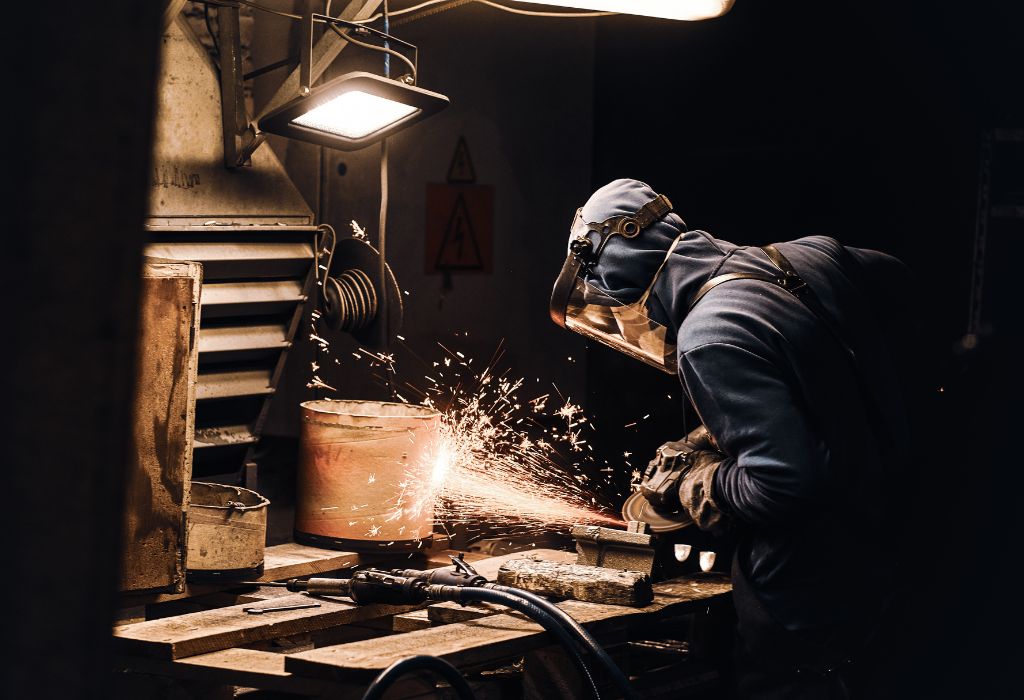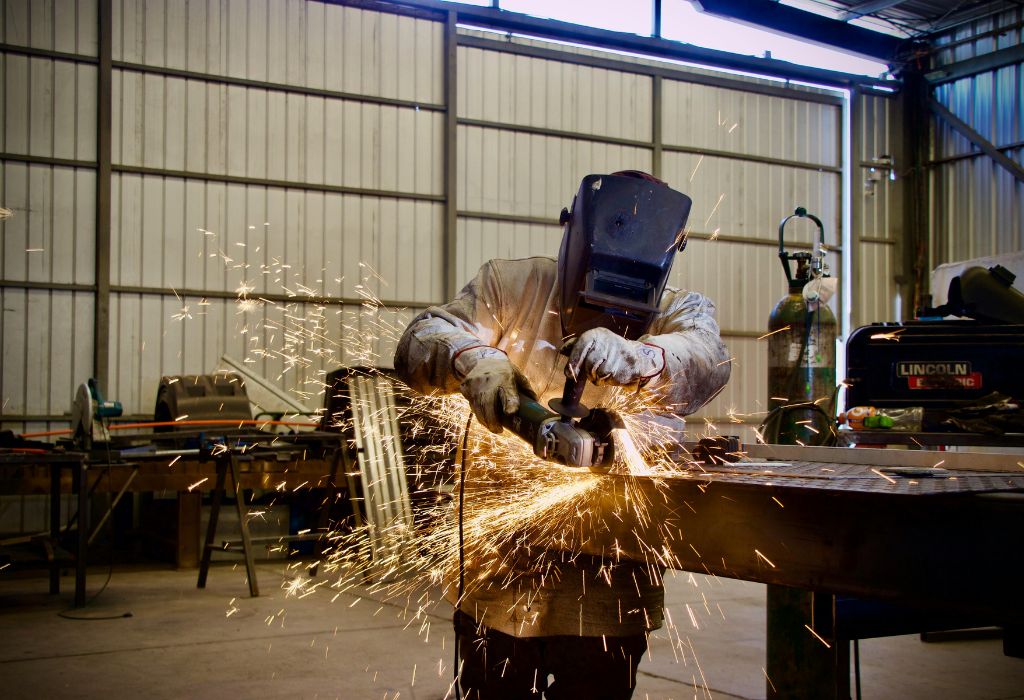You watch a crew of welders fusing massive steel pipes under the open sky. The sparks fly, the seams glow, and the work looks both powerful and precise.
Pipeline welding is one of the most respected and challenging jobs in the trade. It requires skill, discipline, and training, but it also offers high pay and steady demand.
Many people dream of entering this field for the chance to travel, earn well, and work on vital infrastructure. But the question remains—how do you become a pipeline welder?
Pipeline welders join sections of pipe used in oil, gas, water, and utility systems. Their work must withstand pressure, weather, and time, making precision critical.
The path begins with learning basic welding techniques. From there, training programs, apprenticeships, and certifications open the door to specialized pipeline work.
According to the U.S. Bureau of Labor Statistics, more than 42,000 new welding jobs are projected by 2032. Many of these opportunities will be in energy and infrastructure projects where pipelines are essential.
Success in this career isn’t just about technical skills. It also requires physical endurance, a strong safety mindset, and the ability to work in demanding environments.
This guide breaks down exactly how to become a pipeline welder. From education and skills to certifications, career paths, and salary expectations, you’ll discover the step-by-step journey into this rewarding profession.
What Does a Pipeline Welder Do?
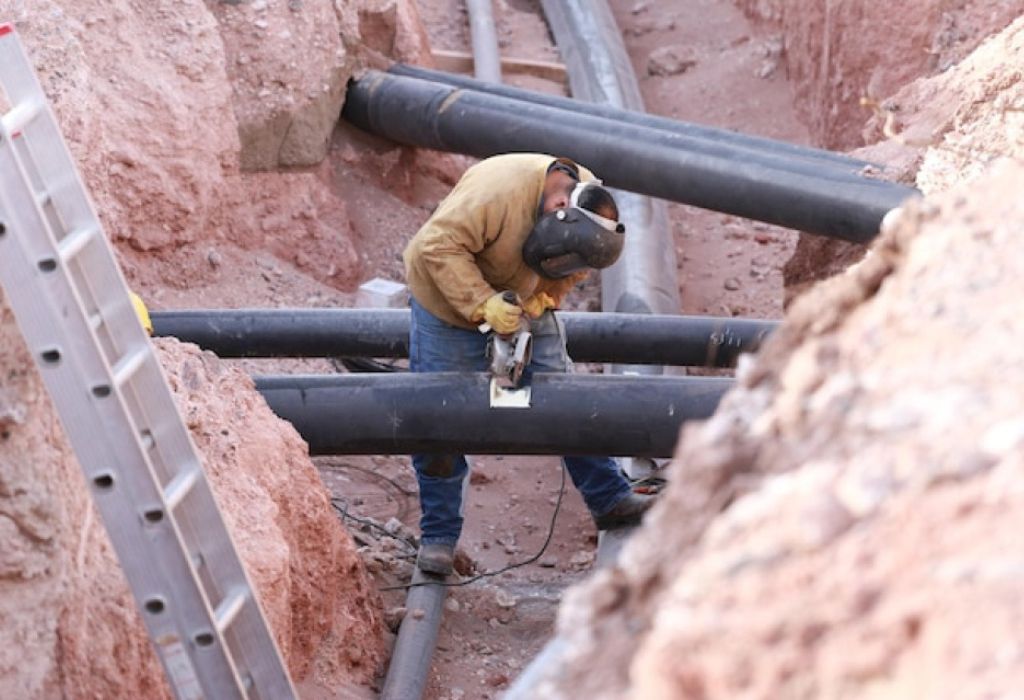
A pipeline welder’s main responsibility is joining sections of pipe. These pipes are used in oil, gas, water, and utility systems that serve millions of people.
Pipeline welders often work outdoors. Many jobs take place in remote locations, oil fields, or along cross-country projects.
The work requires precision because the welds must withstand pressure. A weak weld could cause leaks, safety hazards, or costly failures.
Pipeline welders use multiple processes, including stick, MIG, TIG, and flux-core welding. Each method applies to different pipe sizes and conditions.
They also need to follow strict safety protocols. Working with flammable materials demands extreme caution and consistency.
The job is physically demanding. Welders lift heavy equipment, work in awkward positions, and endure long hours in varying weather conditions.
Despite the challenges, pipeline welding is rewarding. The pay is strong, and the work contributes to critical infrastructure.
This makes it one of the most sought-after welding specialties in the trade.
What is a pipeline welder?
A skilled tradesperson who joins pipes for oil, gas, and utilities.
Where do they work?
In oil fields, refineries, and construction sites.
What welding methods are used?
Stick, MIG, TIG, and flux-core welding.
Is it a tough job?
Yes, it requires strength, skill, and endurance.
Skills Needed to Become a Pipeline Welder
Pipeline welders must master technical welding skills. This includes working with different processes and pipe positions.
They also need the ability to read blueprints and welding symbols. These guides ensure accuracy when assembling large pipeline systems.
Knowledge of metallurgy and materials is important. Different metals require specific techniques to bond securely.
Physical strength and stamina are essential. Welders often work in positions that strain the body.
Steady hands and strong attention to detail improve weld quality. Even minor flaws can compromise safety.
Problem-solving skills are needed in the field. Unexpected challenges arise with weather, materials, or alignment.
Soft skills like communication and teamwork also matter. Welders often collaborate with engineers, inspectors, and labor crews.
Safety awareness ties all these skills together. Pipeline welding is dangerous without strict safety practices.
Do I need advanced math?
Only basic math and measurement skills are required.
Is physical strength important?
Yes, the work is demanding.
Do welders work alone?
The welding is solo, but projects involve teams.
What soft skill is most valuable?
Attention to safety is critical.
Education and Training Requirements
Most pipeline welders start with a high school diploma or GED. This provides the foundation for trade school or vocational training.
Welding programs are available at vocational schools, community colleges, and trade centers. These cover both classroom theory and hands-on training.
Programs include learning welding processes, safety, and blueprint reading. They also introduce specialized techniques for pipe welding.
Pipeline-specific training focuses on positions like 5G and 6G pipe welding. These positions test skill in welding around pipes at challenging angles.
Apprenticeships offer valuable real-world experience. They combine classroom learning with on-the-job training.
Many employers prefer applicants who have both training and certifications. Self-taught welding rarely qualifies for pipeline jobs.
Additional courses in metallurgy, safety, and industry standards strengthen a resume. The more training, the more employable you become.
Education doesn’t need to be long or expensive. Focused trade programs often lead directly to career opportunities.
Do I need a college degree?
No, trade school or vocational training is enough.
What high school classes help?
Shop, math, and science are useful.
Is formal training required?
Yes, employers expect it.
Are apprenticeships important?
Yes, they provide income and experience.
Certifications for Pipeline Welders
Certifications prove a welder’s ability to meet industry standards. They are essential for pipeline work.
The American Welding Society (AWS) offers widely recognized certifications. These demonstrate proficiency in different processes.
The 6G pipe welding certification is one of the most important. It tests skill welding a pipe in all positions, including overhead and vertical.
API 1104 certification covers welding standards for oil and gas pipelines. Many employers require this specific credential.
OSHA safety training ensures compliance with workplace standards. Employers want welders who understand safety regulations.
NCCER certifications are also valued in construction industries. These show knowledge of construction and safety practices.
Employers often require multiple certifications. Passing these tests can open doors to higher-paying jobs.
Continuous certification upgrades help welders stay competitive. Industries evolve, and welders must adapt.
What is the most important certification?
The 6G pipe welding certification.
Do I need AWS certification?
Yes, it is widely recognized.
What is API 1104?
A standard for oil and gas pipeline welding.
Is OSHA training required?
Yes, for safety compliance.
Career Path to Becomcing a Pipeline Welder
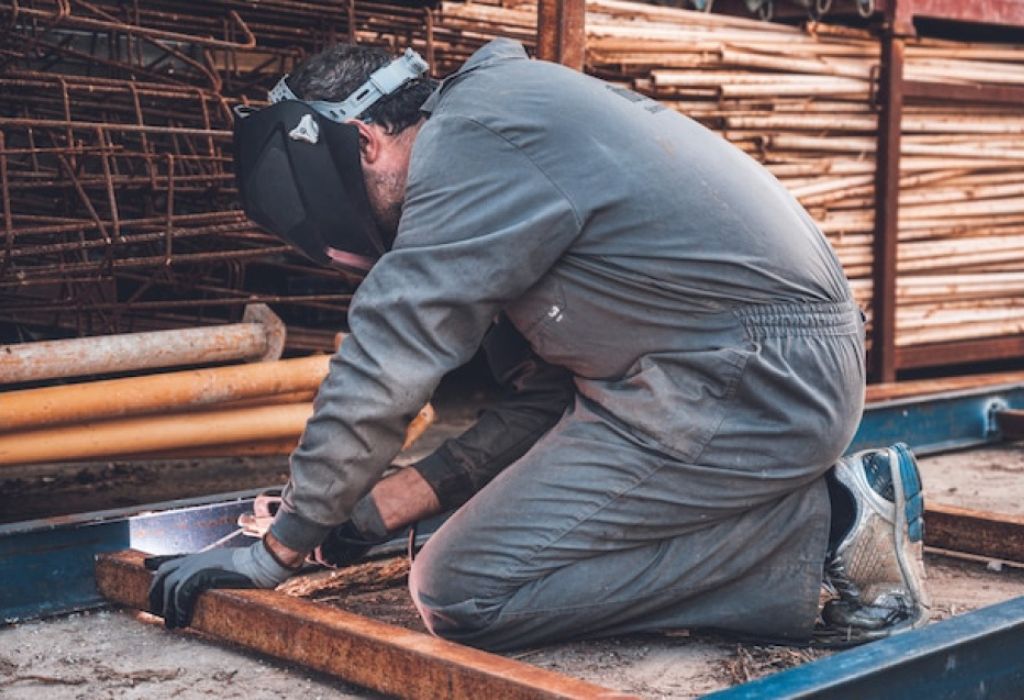
The career path begins with entry-level welding jobs. Many start in fabrication shops or construction.
This early experience develops core skills. Mastering flat and horizontal welds builds confidence before moving to pipes.
From there, welders transition to pipe welding roles. Apprenticeships provide exposure to pipeline work and industry contacts.
Networking with unions or trade associations is a powerful step. These groups connect welders with employers and training opportunities.
With experience, welders can move into foreman or inspector roles. These positions carry higher pay and more responsibility.
Some welders specialize further in subsea or offshore pipeline welding. These jobs are highly paid but extremely demanding.
Others transition into teaching or training roles. Experienced welders are always needed to guide the next generation.
The pipeline welding career path is flexible. Hard work and dedication open many doors.
Can I start as a pipeline welder right away?
No, general welding experience is needed first.
Do unions help with jobs?
Yes, unions connect welders with opportunities.
Can welders move into inspection roles?
Yes, with extra training.
What matters more: school or experience?
Both are essential for success.
Salary and Job Outlook for Pipeline Welders
Pipeline welders earn some of the highest wages in the trade. Salaries range from $50,000 to $100,000+ annually.
Pay depends on skill, certification, and location. Remote or hazardous jobs typically pay more.
Overtime opportunities increase annual income. Many welders work long shifts to maximize pay.
Jobs in oil and gas often provide higher wages. Utility and infrastructure projects may pay slightly less.
The demand for welders continues to grow. Infrastructure expansion and energy demand drive job creation.
Pipeline welding offers stability as a long-term career. Projects exist worldwide, creating opportunities for travel.
Experienced welders with certifications earn top pay. Specialized skills make welders highly competitive in the job market.
The future outlook for pipeline welders remains strong.
How much do pipeline welders make?
$50,000 to $100,000+ per year.
Do they earn overtime?
Yes, long hours add extra pay.
Are jobs available worldwide?
Yes, pipeline welding is global.
Is demand increasing?
Yes, due to infrastructure needs.
Challenges and Risks in Pipeline Welding
Pipeline welding is physically demanding. Welders often work in awkward positions for hours.
Weather conditions make jobs harder. Welders may work in extreme heat, cold, or rain.
Travel is often required. Welders may spend weeks or months away from home.
The work involves hazardous materials. Safety risks include burns, fumes, and explosions.
Equipment is heavy and tiring to manage. Proper lifting and protective gear are essential.
The job requires mental focus as well. Precision welds must be maintained under pressure.
Stress levels can be high. Mistakes can cause costly delays or safety incidents.
Despite risks, many find the rewards worth it.
Is pipeline welding dangerous?
Yes, it involves many risks.
Do welders travel often?
Yes, jobs are usually remote.
Is the job hard on the body?
Yes, it requires strength and stamina.
What is the hardest part?
Balancing safety and productivity.
Tips for Becoming a Successful Pipeline Welder
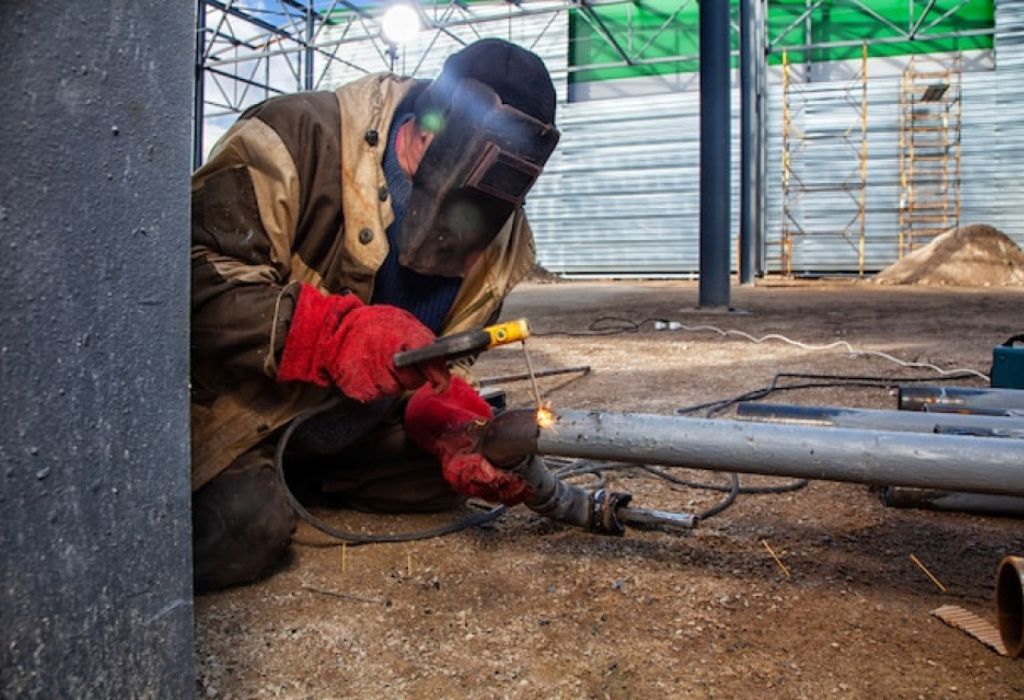
Invest in high-quality safety gear. A good helmet, gloves, and clothing protect against hazards.
Keep practicing welding techniques. Consistency improves weld quality and confidence.
Stay updated with certifications and industry standards. Employers look for welders who adapt to changes.
Network with professionals and unions. Connections open doors to new opportunities.
Maintain strong physical fitness. Endurance and strength make tough jobs easier.
Be flexible and open to travel. Remote jobs often offer the best pay.
Develop a strong safety-first mindset. Employers value welders who prioritize safe practices.
Success comes from discipline, skill, and persistence.
What gear should I buy?
A quality helmet, gloves, and protective gear.
How do I improve my skills?
Practice daily and seek feedback.
Is networking important?
Yes, it creates opportunities.
What personal trait helps most?
Discipline and attention to detail.
Conclusion
Becoming a pipeline welder is a challenging but rewarding journey. It requires training, certifications, and years of experience.
The career offers high pay, steady demand, and worldwide opportunities. Welders build infrastructure that keeps industries moving.
Challenges include travel, physical strain, and safety risks. But for those who commit, the rewards are significant.
For anyone asking “how to become a pipeline welder,” the answer is clear. Start with education, gain certifications, build experience, and work your way into one of the most respected welding careers in the world.

I’m Darrell Julian, the founder, lead writer, and hands-on welding enthusiast behind ArcWeldingPro.com. With more than 15 years of real-world welding experience, I created this platform to share what I’ve learned in the field, in the shop, and in the heat of the arc.

